PROVINCETOWN — Among the glitzy and glamorous denizens of this place in summer, a certain wig-wearing, sequin-bedazzled subset, one often displaying ostentation and flair, tends to be on the receiving end of more animosity than the rest.
Bachelorettes are perhaps the most controversial group for whom Provincetown seems to have a magnetic effect. Mostly younger women, the brides-to-be and their besties are in a demographic minority in this town. That’s especially true at parties and clubs, which are overwhelmingly gay and male even during Family Week.
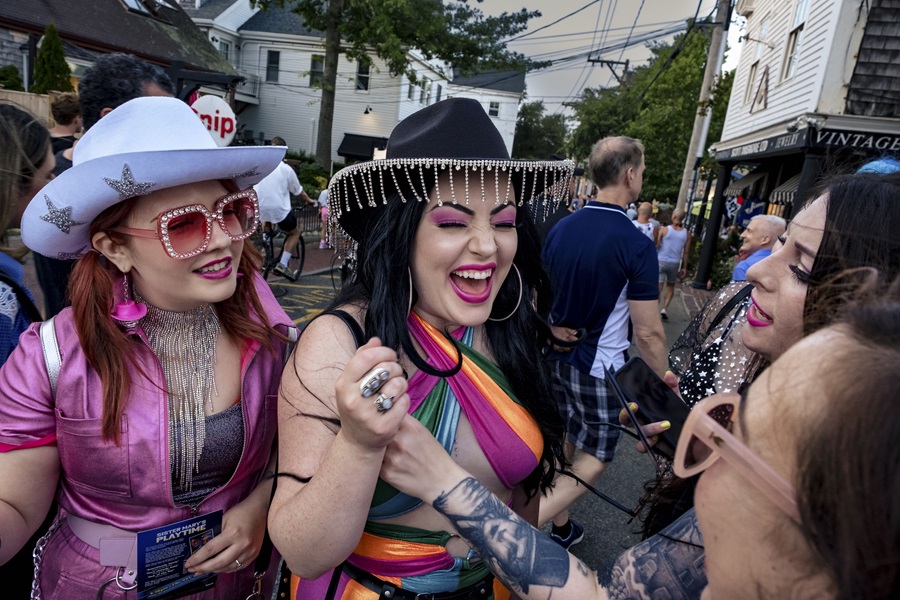
Locals know reviews of the parties are mixed. A reporter’s questions about them elicit eye rolls from some hospitality workers and business owners while getting mere shrugs and smiles from others.
Trevor Pittinger, executive director of the Provincetown Business Guild, said in an email, “We have heard complaints from both business owners as well as community members regarding the influx of straight bachelorette parties and the associated appropriation and disruption that can happen.”
“Like zoo animals is how a lot of the performers feel,” said Shane Shishov, who described himself as “the sound guy, the barker, the dresser, the zipper” at local drag shows. Shishov is often frustrated by bachelorette behavior. “They come into a queer space, and of course as ladies they feel accepted,” Shishov said. “It’s not predatory, but it’s just a lot of gawking.”
Scarlett Strauss, a drag performer with a tri-weekly show at 1620 Brewhouse, was less perturbed. “A lot of them are very celebratory of drag queens and very respectful,” she said.
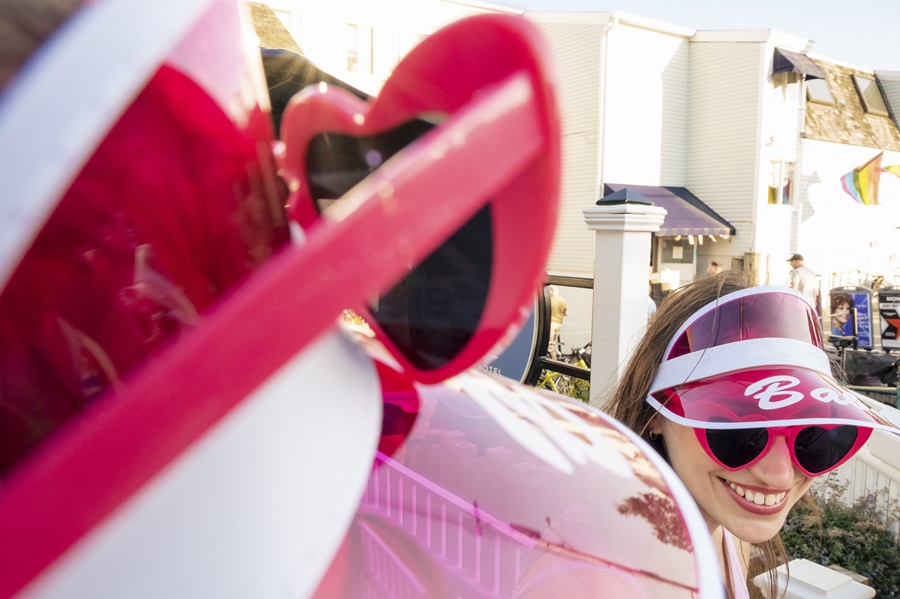
The bachelorettes have their defenders. “I think they’re getting a really hard time for just trying to live a little,” said Janet Jorgulesco, managing partner at Red Room, which hosts drag shows and underwear parties. Though she said her club sees few bachelorettes come in, when they do, “they want to celebrate; they’ve never done anything rude to me,” she said.
Discomfort about bachelorette parties may reflect feelings about a broader phenomenon: straight women flocking to gay venues to party — theoretically safely away from the gaze of straight men.
In the Boston Globe in 2022, professors Laurie Essig of Middlebury College and Vincent Jones II of York College, CUNY wrote an opinion column titled “Bachelorette parties in P-town often destroy safe spaces for LGBTQ+ people.” In it, Jones coined the term “hetrification” — a portmanteau of hetero- and gentrification to describe a way straight people disrupt queer space.
Jones has never visited Provincetown, he said. His theory was based on his experiences in gay venues in New York City, where a straight presence involved nonconsensual touching and an “inhospitable” air.
Essig, who spent two months conducting field research on bachelorette parties in Provincetown, sent a forthcoming article on the topic to the Independent. Straight bachelorettes, she said, “seemed oblivious to the effects of their presence, and the structures of homophobia and misogyny that make Provincetown both a necessary respite from U.S. culture and also a microcosm of it,” Essig wrote.
It is unclear whether “hetrification” is happening here. Notably, a photographer for the Independent found that revelers at three of five bachelorette parties she photographed in Provincetown identified as queer.
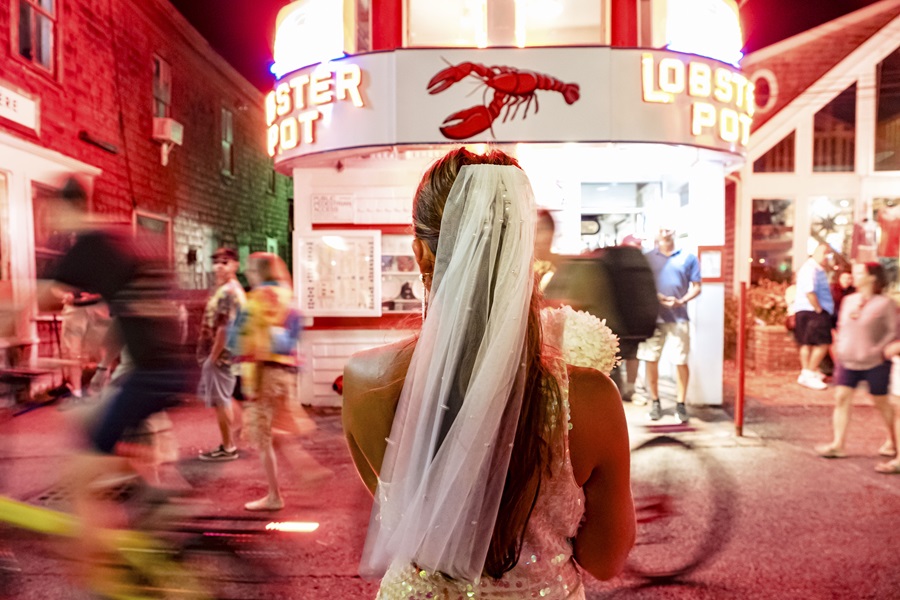
A group of five bachelorettes had a late lunch under the tent at Truro Vineyards in late July. The bride-to-be said her fiancé has a house on the Cape, so partying in Truro and Provincetown made sense for her group. She said she knew bachelorette parties were controversial here and felt she might be derided for choosing to be here. She would not give her name.
Not all business owners are passing judgment, it appears. Truro Vineyards has been an early stop on the bachelorette circuit for 30 to 50 parties so far this summer, according to owner Kristen Roberts. About 5 percent of the rides booked for his Funk Buses transport bachelorettes to Provincetown, said owner Raphael Richter. Neither had complaints about their customers’ behavior.
“I’m on the side of welcoming everybody who wants to come and have a good time,” said Roberts.
“It’s truly not that much of a nuisance when they do spend a decent amount of money,” said Strauss, the drag performer.
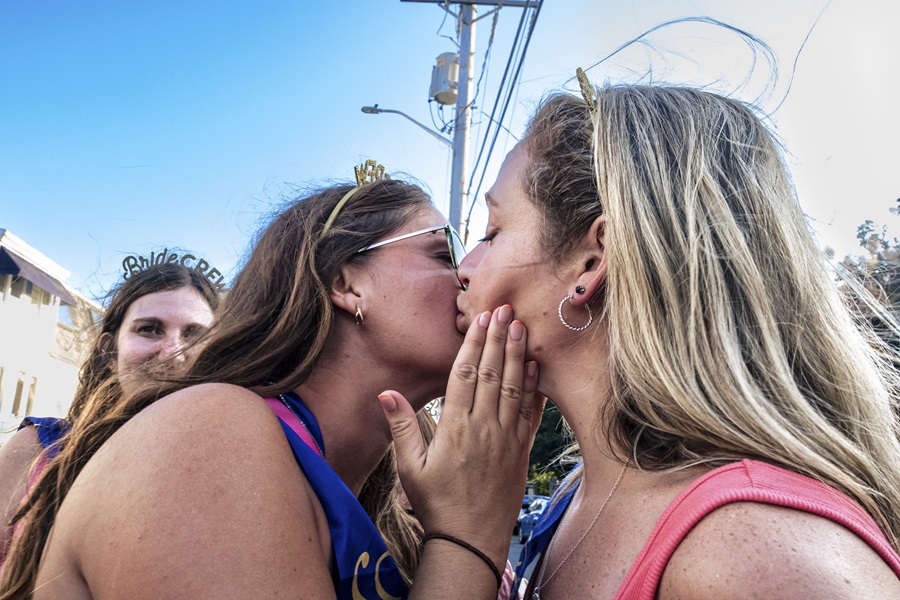
Jill Myers, a bartender at the Old Colony Tap, a classic Provincetown dive bar, said bachelorette parties come in at least monthly. “It’s going to get loud, there’s going to be a lot of screaming, and it’s generally going to be a good time,” said Myers. The bottom line for her was this: the parties aren’t very different from others.
Jorgulesco of the Red Room said she had her own wig-wearing, sash-bearing, tiara-topped P’town bachelorette party a couple of years ago. “We went to places and yelled ‘Shots, shots, shots!,’ ” she said. Jorgulesco said upon entering the Old Colony they were met with an eyeroll until she identified herself as a townie.
It may be that bachelorettes are simply bearing the brunt of wider frustrations with raucous visitors.
“A group of young women celebrating isn’t any worse than a gaggle of gays clacking fans,” said local TV and event producer Marc Guerrette. “We’re all awful in a group.”
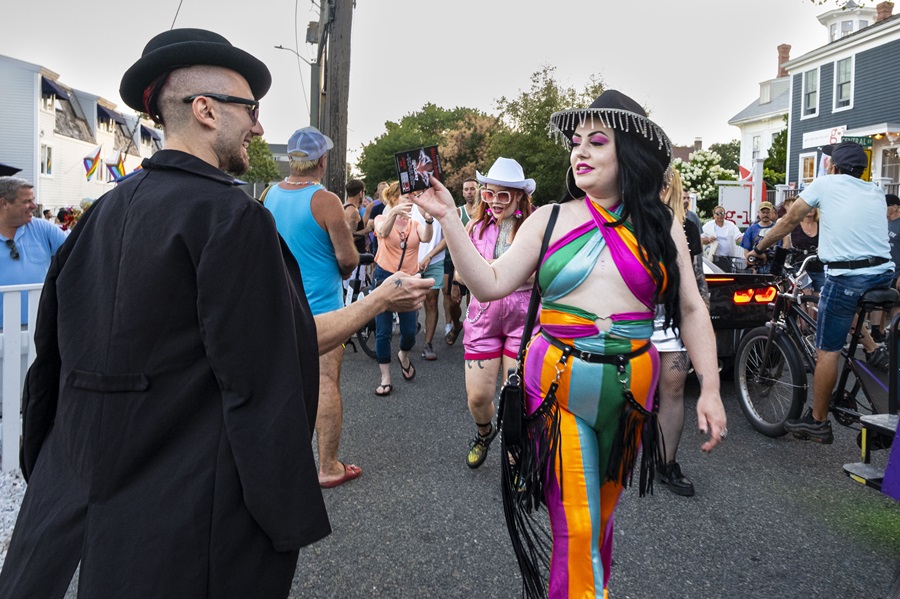
Strolling down Commercial Street on a Saturday afternoon, a group of men in polychrome bob wigs hooted and hollered. At Tea Dance, with Belinda Carlisle crooning “Heaven Is a Place on Earth” in the background, a reporter found two pre-wedding parties: one of bachelorettes sporting identical fanny packs whose organizer said she was too drunk for an interview. She was surely not alone. And another: a multi-gender bachelor party for a gay groom.
Strauss touched on the idea that women tend to be received differently than men here. “I live my life as a very feminine being — in and out of drag,” she said. The responses she’s encountered have left her realizing that “there’s a lot of misogyny in this town.”
“I think that they do feel safe here, so that’s why it happens,” said backstage manager Shishov of bachelorette parties.
Michelle Axelson, proprietor of Womencrafts, a queer and feminist shop in Provincetown, said that bachelor parties should be part of any discussion about bachelorette parties, given that both are raucous but carry vastly different expectations.
Axelson doesn’t love the onslaught of bachelorette parties, but she said she also sees misogyny in the way the groups are received. The whole debate points to broader disturbing facets of our society, Axelson said: “Women do deserve to be safe. It’s curious to me that they have to come to a gay community to be safe.”



